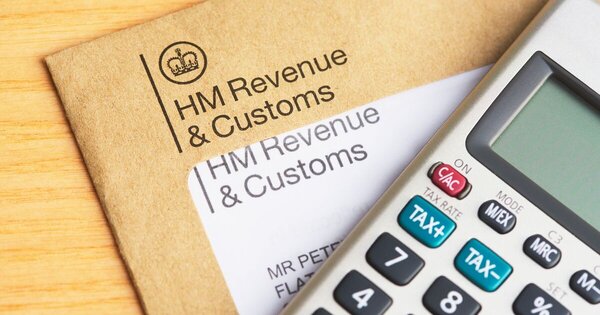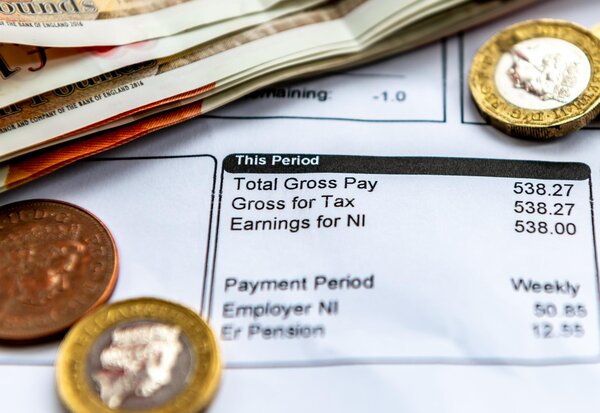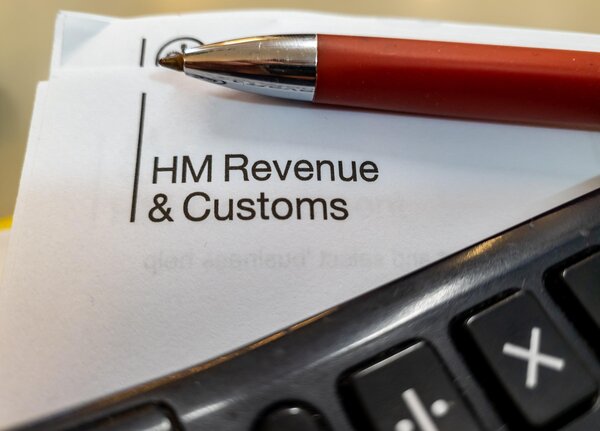Let’s Make Foreign Income Reporting Simple
Earning abroad while living in the UK? You’re probably wondering how to stay on the right side of HMRC when it comes to overseas income.
Declaring foreign earnings can feel confusing, especially when different rules apply to rental income, pensions, dividends, and capital gains. Add currency conversion and tax treaties,
This guide walks you through what counts as foreign income, how to declare it properly, and what reliefs you might be entitled to, so you can avoid penalties and stay compliant with confidence. Let's find out more about this together!
Declare Foreign Income UK Self Assessment
If you’re earning money from abroad, HMRC still wants its share. UK tax rules require residents to report their worldwide income on their self assessment tax return, not just what they earn domestically.
Understanding what counts as foreign income and how it’s taxed is essential for staying compliant. You must declare foreign income for all relevant tax years to avoid issues with HMRC. This knowledge helps you avoid unexpected penalties that could significantly impact your finances.
The good news? Double taxation agreements often mean you won’t pay tax twice on the same income.
Registering for Self Assessment
If you receive foreign income or gains, you’ll usually need to register for self-assessment with HMRC, even if your only income is from overseas sources. This is the first step to ensuring you pay UK tax correctly and stay on the right side of UK tax law.
You should register as soon as you know you have a tax liability, ideally by 5 October following the end of the relevant tax year in which you received foreign income. Missing this deadline can result in penalties and interest on unpaid tax, so it’s important not to delay.
Registering is straightforward and can be done online through the HMRC website. Once registered, you’ll receive a Unique Taxpayer Reference (UTR), which you’ll need to complete your self assessment tax return. Make sure you keep your UTR safe, as it’s essential for all your dealings with HMRC.
Even if you’re a UK resident with only foreign income, or if you’re claiming the remittance basis, you must still register and file a tax return if your foreign income or gains are taxable in the UK. This includes income from foreign employment, overseas property, foreign investments, or any other income earned abroad.
If you’re unsure whether you need to register, it’s strongly recommended to check with a tax adviser or use HMRC’s online tools. Registering early gives you plenty of time to gather your documents and complete your assessment tax return accurately.

What Counts as Foreign Income for UK Tax Purposes?
Foreign income covers earnings you receive from overseas sources. This includes wages from an employer based abroad or pensions paid from another country.
Rental income from properties you own overseas definitely counts too. I once helped a client who didn’t realise her Spanish holiday apartment rentals needed declaring in the UK.
Income from the Channel Islands and other countries outside England, Scotland, Wales, and Northern Ireland is also considered foreign income for UK tax purposes.
Interest from foreign bank accounts, bank interest, savings income, and dividend income from overseas investments are all considered types of foreign income. Even small amounts need reporting.
If you run a foreign business abroad or have a share in a foreign partnership, those profits need to be declared on your UK return as well.
Capital gains from selling foreign assets also count as foreign income for UK tax purposes.
How to Report Foreign Income on Your Self Assessment
Different types of foreign income need different supplementary pages. Overseas employment needs the SA102 Foreign form, while foreign property income requires the SA106. If you have disposed of foreign assets, you may also need to report capital gains tax using the relevant supplementary pages.
You’ll need to convert your foreign income to pounds sterling. Using the annual average exchange rate is common practice and accepted by HMRC.
Keep all documents relating to your foreign income, including proof of any foreign tax paid. These might be needed if HMRC has questions later, and are essential to ensure all taxes are correctly reported and paid.
If you’ve already paid tax overseas, you can usually claim foreign tax credit relief. This reduces your UK tax bill and prevents double taxation.
A common mistake is forgetting to tick the ‘foreign’ box when entering income. This can lead to your foreign tax credits being overlooked.
Double Taxation Relief and Foreign Tax Credits
The UK has tax treaties, known as double taxation agreements, with over 130 countries. These agreements determine which country has the primary right to tax different types of income and are designed to prevent individuals from being taxed twice on the same income or taxes.
The basic principle is that you shouldn’t pay tax twice on the same income. If you’ve paid tax abroad, a double taxation agreement can help you claim credit against your UK liability.
To calculate foreign tax credit relief, work out your UK tax on that foreign income. Then compare it with the foreign tax paid and claim the lower amount.
Claims for double taxation relief must normally be made within four years. Missing this deadline could mean paying more tax than necessary. We strongly recommend seeking professional advice if you are unsure about claiming double taxation relief.

Record Keeping and Compliance
HMRC expects UK residents to keep detailed records of all overseas income, foreign tax paid, and any supporting documents for at least five years after the 31 January submission deadline for each tax year.
You should keep copies of foreign bank statements, payslips from foreign employers, dividend vouchers, property rental agreements, and any foreign tax certificates. If you’ve claimed foreign tax credit relief or double taxation relief, keep evidence of the tax paid in the foreign country. These records will help you accurately report your income and claim any tax reliefs you’re entitled to.
Digital record keeping is highly recommended, as it makes it easier to organise and retrieve documents if HMRC asks for evidence. Many taxpayers use apps or cloud storage to keep everything in one place, which can be especially helpful if you have income from multiple countries or sources
Staying organised and compliant means you can confidently pay UK tax on your foreign incomes, avoid unnecessary stress, and ensure your self assessment tax return is accurate every year.
Penalties for Not Declaring Foreign Income
HMRC has extensive powers to look back at your tax affairs. They can issue 'discovery assessments' going back up to 20 years for undeclared foreign income.
Penalties for failing to declare can be severe – up to 200% of the tax due in cases of deliberate concealment. This can quickly become a substantial sum.
Interest runs on unpaid tax from the date it should have been paid. Over time, this can significantly increase your overall bill.
HMRC offers the Worldwide Disclosure Facility for those wanting to come clean about previously undeclared foreign income. Using this can reduce potential penalties.
In extreme cases of tax evasion involving foreign income, criminal prosecution is possible. This could potentially result in a prison sentence.

Final Thoughts
Declaring foreign income on your UK self assessment is a legal requirement that shouldn't be overlooked. The process might seem complex, but getting it right is essential.
Keep detailed records of all your foreign income and any tax already paid overseas. These will be invaluable when completing your tax return.
With global tax information sharing agreements now in place, HMRC has greater visibility of overseas income than ever before. It's much better to be upfront than risk discovery later.
Pie.tax: Simplifying Foreign Income UK Self Assessment Tax
Handling overseas earnings doesn’t have to be complicated when you have the right guidance. At Pie tax, we offer clear, practical advice to help you report foreign income correctly on your UK self assessment.
We can help you understand which types of overseas income need declaring, how to apply the correct exchange rates, and which supplementary pages you’ll need to complete.
If you're unsure about foreign tax credits or double taxation relief, our team can point you in the right direction and help you avoid common mistakes.
Whether it's rental income, dividends, or earnings from employment abroad, we're here to support you with tailored advice so you can stay compliant with HMRC.











